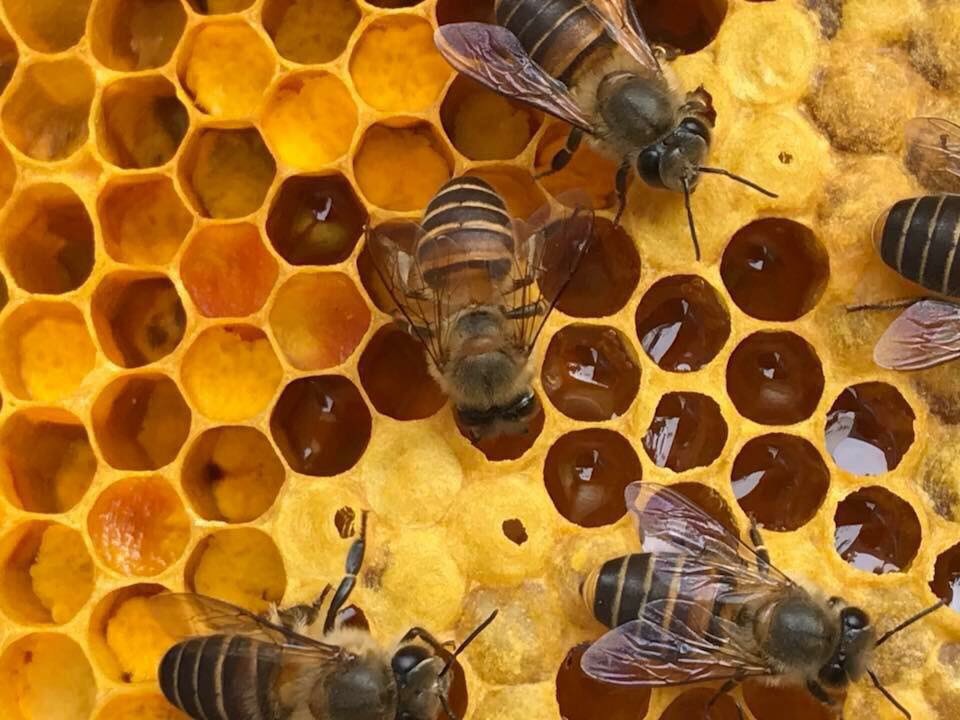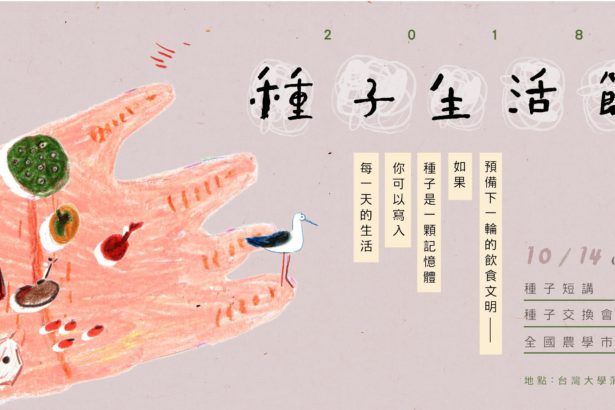The crisis of wild bee extinction in Taiwan is solved! Natural breeding of disease-resistant bee species, research and development of antiviral globulin to enhance immunity
Share105 + 1 Tweet EmailShares 105
(by upstream and downstream reporters Liu Yixin and Lai Yuwei / tr. by Robert Taylor)
It has been nearly two years since the outbreak of the severe "cystic larva virus" (AcSBV) in Taiwan's wild bee population. Chen Yuwen, a special professor in the Department of Biotechnology and Animal Science of Ilan University, has been entrusted by the Prevention and Inspection Bureau to launch a Taiwan-wide surveillance survey. the latest research results show that the average infection rate of oriental bees is 70% this year, while that of western bees has dropped to 2.2%. The root of mesocystic virus remains in the domestic wild bee colony, how to face the threat of mesocystic disease, there are two methods in apiculture: "natural breeding" and "administration to enhance immunity".
Huang Yongsheng, president of the bee society, who has nearly 10 years of experience in breeding and observation, says that the first pandemic was terrifying. Bees had no contact with the virus, but when they encountered it, they had to destroy and flee, and the number of bees decreased rapidly. But over the past three years, through natural breeding, leaving bees with high disease tolerance, "this is the beauty of nature, a rich gene pool, and preserving the future of wild bees."
Chen Yiling, a professor in the Department of Biotechnology and Animal Science at Ilan University, has tried to develop globulin against medium-cystic disease. At present, it is available to a small number of bee farmers for trial use at the initial stage of the disease, with remarkable results. However, due to the complicated production procedures, it can only be produced in a small amount at present, and there are still many tests on whether it can be produced in large quantities in the future.

2.jpg)
Healthy Oriental Bee after treatment (courtesy of Chen Yiling)
For other bee farmers to clear their nests to deal with cystic disease, Xie said, "if only one or two groups still have a way to help catch infected wild bees, if many colonies are impossible at all." And nest clearance can only slow down the situation, but in the end the virus will spread. at the beginning of this year, he tested a group of people who did not spray nutrient solution, dealt with it in the way of nest clearance, and finally wiped out it all.
Due to the complicated procedures for making anti-medium capsule globulin, only a small amount of globulin can be produced at present, and bees with diseased colonies are open to obtain it free of charge. Chen Yiling says that even though China tested globulin against larval cystic virus six years ago, there has been no technological transfer and mass production. "because the market is too small, the cost of globulin technology is high."
Is it necessary to accept the nutrient solution? Prevention and Inspection Bureau: flexible in
Although globulins that can be used to fight mesocystic disease are being issued, it still depends on the attitude of the Prevention and Inspection Bureau whether the drugs can be used legally and whether they need to be administered. Chen Yi-ling says that she has communicated with the Prevention and Inspection Bureau many times, and the Bureau also hopes to find manufacturers to cooperate in developing products. "but now, because the wild bee market is small and the beekeeping population is small, no manufacturer is willing to invest NT $10 million to NT $2 million in this market." Chen explained that he had made an agreement with the Prevention and Inspection Bureau to wait until spring next year, when the anti-medium capsule nutrient solution was formally tested for two years, to confirm that it was effective, and then sent it to the Prevention and Inspection Bureau for inspection, and further planned for follow-up field trials and mass production of the products.
Xie Lianqin recalled the outbreak of cystic disease at the end of 2016. "before the outbreak, there were 100 colonies, but at the end of the year, there were single digits and almost returned to zero." The antidote could not be found anywhere. Later, teacher Chen Yiling was asked to study the antidote. It was only then that the number of bee colonies gradually increased and grew to more than 50 colonies now. "the biggest problem now is that it is impossible for teachers to produce so much, and many bee farmers can't even try it out if they want to."
Feng Hai-dong, director of the Bureau of Prevention and Inspection, responded to this: it is necessary to actually look at the ingredients of the anti-medium capsule nutrient solution, no matter whether it is traditional Chinese medicine or chemical composition, and to understand its therapeutic effect on wild bees. "if it's not a big deal, it doesn't have to be strictly controlled. There's flexibility." However, no sample of anti-mesocyst nutrient solution has been received, and the actual product information is not known. "the test must still let the competent authorities know that if it is really to be used from a legal point of view, it is against the rules to use it now."
Taiwan wild bees face extinct death due to virus invasion
Share105 + 1 Tweet EmailShares 105
- Prev

Nantou Tea Expo will meet you in Zhongxing New Village from the 6th.
The Nantou World Tea Expo, which has entered the 9th Nantou World Tea Expo, will be staged in Zhongxing New Village from October 6 to 14. During the 9-day exhibition period, there will be not only rich and high-quality tea industry exhibitions and cultural exhibitions of tea products from various countries, but also thousands of people kneading tea during the holidays.
- Next

2018 seed Life Festival
2018 seed Life Festival
Related
- A course of planting techniques and methods on how to grow carrots
- How to plant the latest tulips?
- Is it better to pick tea in the morning or in the afternoon? When is the best time for tea to be picked? what is the third or fifth tea?
- Launch Yuanxiao Happy combination Haocha + Tea Yuan healthy Taste
- Penghu Tourism "Fireworks 20 Parade with You"
- 2022 West Lake Happiness holds "Digital Revitalization Voucher" and draws iphone13 and laptop.
- Banqiao Fuzhou social houses are designed to change start-up combined with police elimination to create a safe and livable environment
- The convenient measure of "mechanical weeding" in Xinbei has been abused and the Agriculture Bureau has imposed heavy penalties on the illegal land consolidation.
- Changgeng University Joins Hands with Four Memory Factories to Rescue Memory Talent Shortage
- The list of Taiwan's top 100 MVP managers is listed by the Director-General of the Farmers' Association of Sanxia District.

